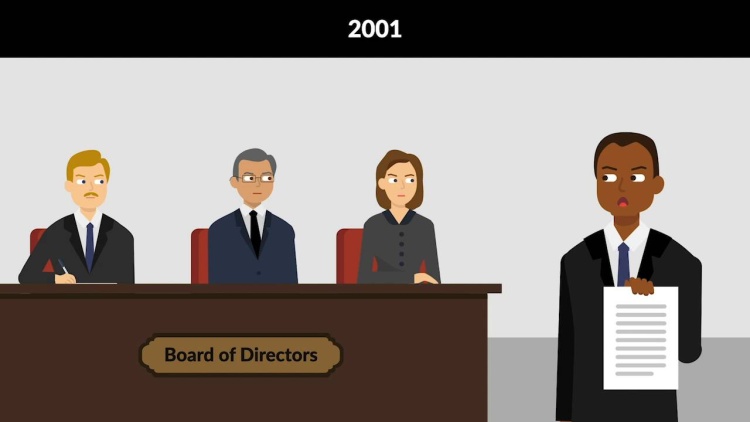Adlerstein v. Wertheimer
Delaware Court of Chancery
2002 WL 205684 (2002)
- Written by John Caddell, JD
Facts
Joseph Adlerstein (plaintiff) founded SpectruMedix Corporation (SMC) (defendant) in 1992 Adlerstein served as chairman and CEO of SMC, a manufacturer of scientific instruments, and starting in 2000 he controlled a majority of the company’s voting shares. In early 2000, Steven Wertheimer and Judy Mencher (defendants) joined SMC’s board of directors. SMC began to face serious liquidity problems. After commissioning a report by an outside consultant, Wertheimer and Mencher learned that Adlerstein had not been fully candid about the state of the company. Adlerstein also attempted to obstruct the consultant’s efforts to make operational changes to the business. In June 2001, the situation became dire, and Wertheimer and Mencher concluded that the company could not survive unless Adlerstein was removed. Without informing Adlerstein, they began discussions with wealthy investor Ilan Reich (defendant) and formulated a plan. They presented the proposal to Adlerstein for the first time at a meeting on July 9, 2001, and over Adlerstein’s objections, the board approved the following: Adlerstein would be terminated as CEO for cause, Reich would provide an influx of capital, Reich would gain control of a majority of voting shares of the company, and Reich would be named CEO. Reich later used his majority control to remove Adlerstein from the board of directors via shareholder consent. Adlerstein sued Wertheimer, Mencher, Reich, and SMC. He argued that the July 9 meeting was not properly noticed, and that therefore, all the actions taken at that meeting were void. He further claimed that the actions by Wertheimer and Mencher constituted a breach of their fiduciary duty to him. At trial, testimony conflicted as to whether Adlerstein had notice that the July 9 meeting was to be a board meeting. SMC bylaws provided that the president may call a meeting on 48 hours’ notice, and that written notice was not required. It was plainly established, however, that Adlerstein was not informed of the Reich takeover plan until the meeting itself.
Rule of Law
Issue
Holding and Reasoning (Lamb, J.)
What to do next…
Here's why 907,000 law students have relied on our case briefs:
- Written by law professors and practitioners, not other law students. 47,100 briefs, keyed to 996 casebooks. Top-notch customer support.
- The right amount of information, includes the facts, issues, rule of law, holding and reasoning, and any concurrences and dissents.
- Access in your classes, works on your mobile and tablet. Massive library of related video lessons and high quality multiple-choice questions.
- Easy to use, uniform format for every case brief. Written in plain English, not in legalese. Our briefs summarize and simplify; they don’t just repeat the court’s language.





